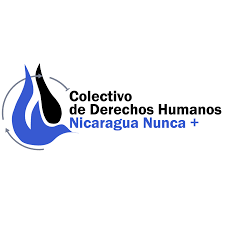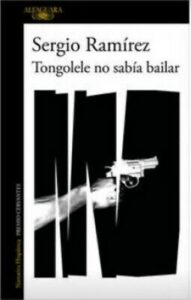“There is no democracy. Democracy has been demolished,” exiled Nicaraguan journalist Carlos Fernando Chamorro tells PBS’s Nick Schifrin (above).
Nicaragua’s President Daniel Ortega easily locked in a fourth consecutive term after suppressing political rivals, results showed on Monday, leading Washington to warn it would press for a “return to democracy” and free and fair elections, Reuters reports. “The Ortega-Murillo government has deprived Nicaraguans of any real choice by dissolving all genuine opposition parties and imprisoning all the principal presidential candidates,” said US Secretary of State Antony Blinken (below).
“This is a turning point toward authoritarianism in the region,” said José Miguel Vivanco, head of the Americas region for Human Rights Watch, who called Mr. Ortega’s crackdown “a slow-motion horror movie,” the Times adds.
“He is not even trying to preserve some sort of facade of democratic rule,” Mr. Vivanco said of the Nicaraguan leader. “He is in a flagrant, open manner, just deciding to treat the election as a performance.”
—————————————————————————————————————————————–
The election was marked by historically high abstention levels from voters and the suppression of political dissent, with seven presidential candidates and nearly 40 civil society and political opposition figures behind bars, adding to a total of over 150 political prisoners, a leading democracy advocate adds.
Nicaraguans were also voting to send 90 representatives to the National Assembly as well as 20 to the PARLACEN (Central American Parliament), which released a disappointing Tweet celebrating Nicaragua’s sham elections yesterday. The day before the election, the Ortega regime harassed and detained over 20 territorial representatives of the UNAB and Alianza Civica democratic platforms, and denied international reporters entry to cover the elections. However, Ortega invited 450 election observers from regimes and organizations that are friendly to his rule.
The Ortega-Murillo government deprived Nicaraguans of any real choice by dissolving all genuine opposition parties and imprisoning all the principal presidential candidates, said @SecBlinken https://t.co/pwGSyG0YVT
— Democracy Digest (@demdigest) November 8, 2021
The official results, as of 1am Nicaragua time, are the following: 74.99 percent of the vote for the FLSN/Ortega (1,014,334 votes out of a total of 1,352,556), granting Ortega a fourth, five-year presidential term and his wife Rosario Murillo another term as Vice President. The Partido Liberal Constitucionalista (PLC) came in a very distant second with 194,745 votes. Perhaps the most surprising news was the historically high abstention levels from voters. Reports and images of nearly empty voting centers throughout the country were circulating on social media all day, with a #YoNoBotoMiVoto campaign in full swing. These images of nearly empty voting centers circulated, despite the FSLN busing in party militants and state sector workers to the polls.
Urnas Abiertas, the largest independent election observation platform, dispatched 1,450 citizen observers and with the information gathered, declared an abstention rate of 79-84 percent from voters (average of 81.5 percent). This is the highest abstention level documented in Nicaragua’s recent history. The platform also documented over 200 incidents of violence at the voting centers, which included harassment and intimidation from paramilitaries. The Consejo Supremo Electoral (CSE), in stark contrast to Urnas Abiertas, declared a participation rate of 65.34 percent.

International reaction to the electoral farce has been swift. The Biden administration released a statement calling the elections a “pantomime” and reiterating that the United States, “in close coordination with other members of the international community, will use all diplomatic and economic tools” at its disposal to hold the regime accountable. While the long awaited RENACER Act was sent to the Biden Administration’s desk for his signature this past week, the administration expressed a desire to wait until after yesterday’s elections to move forward.
Yesterday evening, Costa Rica became the first government to declare that it would not recognize the results of the “sham elections“’ and the EU’s Josep Borrell has released a statement on behalf of the EU’s 27 member states declaring the elections illegitimate and promising to study instruments to adopt additional measures, which could go beyond individual restrictions. Spain’s Foreign Minister also characterized the “elections” as an affront to democracy.
 The Nicaraguan diaspora mobilized across the globe to express their rejection of the electoral process, and to build pressure on the international community to reject the elections’ legitimacy. On this note, four Latin American former presidents – Laura Chinchilla, Fernando Henrique Cardoso, Juan Manuel Santos, and Ricardo Lagos – are calling for non-recognition of the election results and for greater international measures to isolate the regime, such as its formal suspension from the OAS during its General Assembly meeting later this week, and the suspension of international financial transactions with the regime.
The Nicaraguan diaspora mobilized across the globe to express their rejection of the electoral process, and to build pressure on the international community to reject the elections’ legitimacy. On this note, four Latin American former presidents – Laura Chinchilla, Fernando Henrique Cardoso, Juan Manuel Santos, and Ricardo Lagos – are calling for non-recognition of the election results and for greater international measures to isolate the regime, such as its formal suspension from the OAS during its General Assembly meeting later this week, and the suspension of international financial transactions with the regime.
What remains to be seen is how the international community acts collectively and engages in greater coordination to address the consolidation of the Ortega-Murillo dictatorship, which has negative implications for the Central America region, not to mention the potential to exacerbate Nicaraguan migration across the region and at the U.S. border. Nicaraguan civil society is also in a period of flux as it observes the regimes’ next moves and adapts its strategy to the new reality of confronting a more radical and consolidated dictatorship.
Experts believe Ortega’s determination to win, whatever the reputational damage, reflected his fear of losing power and being prosecuted for alleged crimes against humanity as a result of a deadly 2018 crackdown on student-led protests in which more than 300 people were killed, the Guardian adds.
“He has shown that political survival outweighs any possible internal or external pressure. It was a matter of life or death for him to ensure re-election on Sunday,” said Tiziano Breda, a Central America specialist at Crisis Group.
 “In the last few years, we’ve witnessed first-hand the plot of a horror thriller developing in the country, where deadly police repression, wrongful imprisonment, ill-treatment, harassment and criminalization of human rights defenders and journalists are common practices, all of them endorsed by a judiciary without independence and a National Assembly that exists only to rubberstamp Daniel Ortega’s repressive agenda,” said Erika Guevara-Rosas, Americas director at Amnesty International:
“In the last few years, we’ve witnessed first-hand the plot of a horror thriller developing in the country, where deadly police repression, wrongful imprisonment, ill-treatment, harassment and criminalization of human rights defenders and journalists are common practices, all of them endorsed by a judiciary without independence and a National Assembly that exists only to rubberstamp Daniel Ortega’s repressive agenda,” said Erika Guevara-Rosas, Americas director at Amnesty International:
Since 2018, Amnesty International has documented human rights violations including violent and lethal repression against demonstrators and harassment and criminalization of social activists, human rights defenders lawyers and journalists. The government-controlled National Assembly also passed several laws that severely diminished the civil space and put human rights at risk.
The plight and courage of Nicaragua’s civil society was highlighted in the National Endowment for Democracy’s 2021 award to the Colectivo de Derechos Humanos Nicaragua Nunca Más (above), a group dedicated to preserving historical memory in Nicaragua and seeking justice for victims of the state-led violence unleashed by the Ortega regime in 2018. The NED also recognized Honduran media group Contracorriente, Guatemala’s Myrna Mack Foundation (MMF) and Salvador’s Asociación Transparencia, Contraloría Social y Datos Abiertos (Transparency, Social Oversight, and Open Data Association, or TRACODA).
Why is a government that controls the country’s armed forces and security apparatus afraid of a novel? Ortega’s former Sandinista comrade Sergio Ramírez asks in a new book (above).
The Nicaraguan regime uses references to “foreign agents” and “cybercrimes” in an arbitrary manner to criminalize any form of opposition, says a new report from the International Federation of Human Rights. They allow for the closure of media outlets and hinder the work of NGOs by limiting access to funding for defenders, all of whom are labelled as “foreign agents” or “terrorists” (see below).








